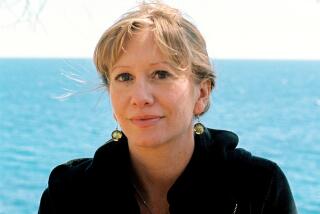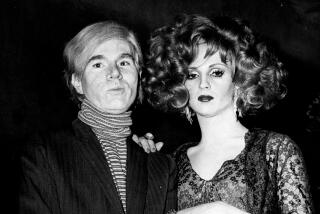Much to talk about
Why am I throwing yet another (b)log on the towering inferno of mommy blogs out there? There must be at least a gazillion of them, to use my son’s word for anything larger than 10. And yet there also seems to be an unquenchable desire to talk about parenting, as if we’re the first to experience it. Turning “parent” into a gerund would have been alien to our parents, which says a lot about where we are.
I used to host a radio show on NPR called “Day to Day.” Whenever we did a story on parenting, the response was big. I thought, “Wow, this is really connecting with our listeners; wouldn’t it be great to do a whole show or series of podcasts on this topic?” But being a mom with a full-time job, I couldn’t really find the time.
Soon, I had all the time in the world: NPR canceled the show, and I lost my job. So I downsized from NPR’s swank Culver City studios to my closet, which my husband gallantly soundproofed. I bought some audio equipment, and “Parenting on the Edge” was born.
Now I’ll be here, writing and podcasting regularly for Home and latimes.com. And with “Where the Wild Things Are” making its premiere in movie theaters this weekend, “Parenting on the Edge” turns to the topic of children’s books, specifically bad children’s books that have become classics. (Subtitle it: “Why I Despise ‘The Giving Tree.’ ”)
If you’re like me, you have certain picture books that you read over and over to your children. Maybe they were books you loved as a child. Some of those books, however, don’t seem so great now.
“The Rainbow Fish” really gets me. This is a story about a fish with beautiful scales who realizes that the only way he’ll have friends is if he gives away his prized scales to the fish who don’t have them. At first I thought, that’s great. It’s about sharing, about not being vain and selfish.
But then I thought, what’s wrong with keeping your beautiful scales? Why do you have to share everything? More important, the book seems to be saying, “Don’t be unique. Don’t be special. Don’t be different.”
The Rainbow Fish is mild, though, compared with some other classics. In this week’s podcast, I discuss them with children’s book author Laurel Snyder, who conducted a survey on her blog about her three most-hated picture books: “The Runaway Bunny,” “Love You Forever” and “The Giving Tree.”
That last one is the book I find the most offensive. I remember loving it as a kid, but when I received 50 copies after the birth of my children, I read it with adult eyes and was horrified. This tree -- the mother -- keeps giving and giving and giving to a child who keeps taking and taking and taking. He denudes her, literally, until she is a stump, and then at the end, the boy -- now a tired, old man -- sits on her.
The tree says she’s happy -- happy to be sat upon.
What kind of message does that send to a child?
“Children’s books educate children, but children’s books also educate parents,” says Snyder, who adds that “The Giving Tree” reflects old-fashioned gender roles. “When you give a new mother after her first baby 10 copies of ‘Giving Tree,’ it does send a message to the mother that we’re supposed to be this person.”
I think we’re all a wee bit neurotic, and the plethora of information out there probably is not helping. My desire is to challenge the often-paralyzing societal pressure to get it right. My hope is that this podcast isn’t one more anxiety-producing parenting log on that huge bonfire but more like a place to cool off, relax and realize that:
a) you’re going to be OK.
b) so is your child.
c) this parenting thing can actually be a lot of fun.
And when it isn’t, slap on a pair of headphones and hang out with me on “Parenting on the Edge.”
--
Look for Brand’s podcast at latimes.com/parenting.
Earlier episodes, covering topics such as what children should not be learning in preschool, the social dilemmas faced by stay-at-home dads and why a family gave up everything to travel the world can be found at madeleinebrand.com.
More to Read
Sign up for our Book Club newsletter
Get the latest news, events and more from the Los Angeles Times Book Club, and help us get L.A. reading and talking.
You may occasionally receive promotional content from the Los Angeles Times.






